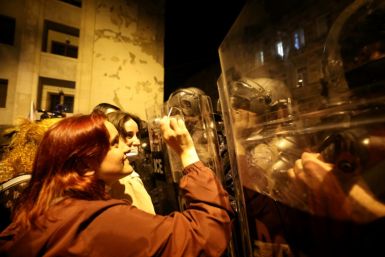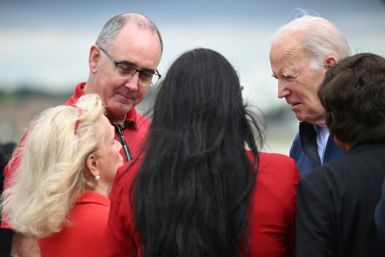'Reclaimed Ruins': Azerbaijan Shows Off Karabakh Conquests
They conquered withered vineyards and left behind burnt carcases of tanks to plant an Azerbaijani flag atop a barren hill on the edge of Nagorno-Karabakh -- overlooking nothing at all.
Fighting erupted three weeks ago between Christian ethnic Armenians and Muslim Azerbaijan over a blood-soaked patch of mountains both call part of their ancestral lands.
The Azerbaijani side has spent days trumpeting military successes that give the air of an army on the move.
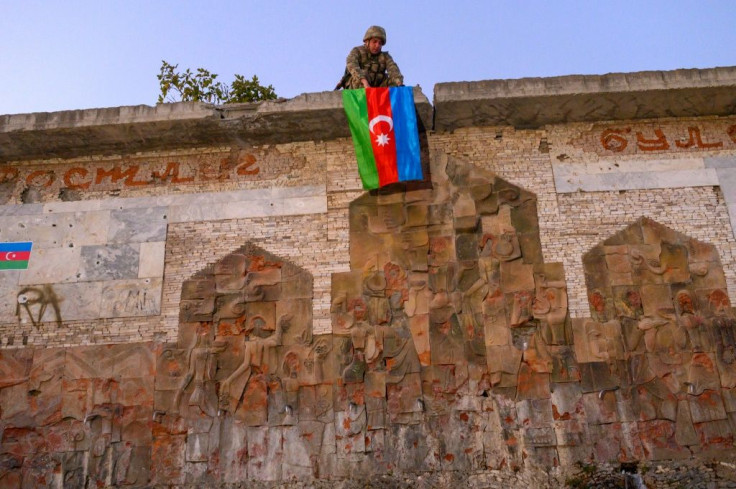
"If they don't leave on their own, we'll chase them out like dogs," President Ilham Aliyev said on the eve of a new ceasefire on Sunday that both sides accused the other of immediately breaking.
On Twitter, Aliyev lists towns his forces have recaptured for the first time since a 1994 truce ended a war that killed 30,000 and left the region -- to the horror of Azerbaijanis -- in separatist hands.
One of these towns is Jabrayil.
Yet it is not just empty after being trapped in a no-mans land splitting Nagorno-Karabakh proper from territory under Azerbaijani control -- there is simply no trace of it left.
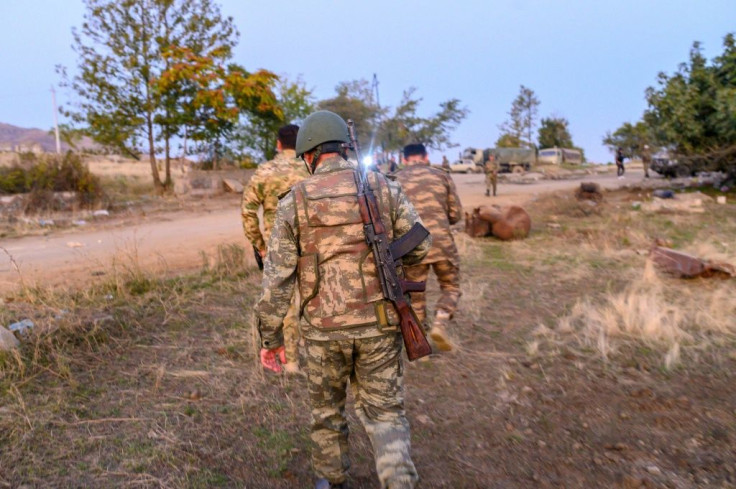
The valley rolling down from the hill with the flag is covered with craggy bushes and a few low outlines of brick walls that have been blasted apart by rival forces for a generation.
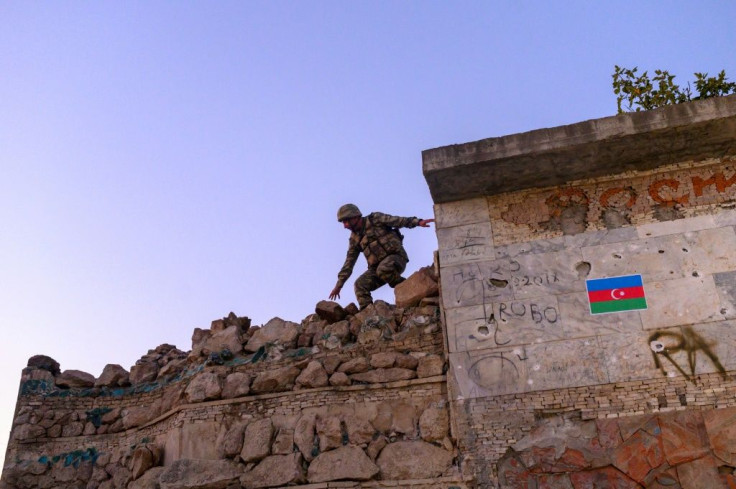
Jabrayil's lone standing structure is a cliff-like monument equipped with running faucets that the Soviets erected to encourage "friendship and inter-ethnic peace".
A machine-gun toting soldier climbed this to unfurl an Azerbaijani flag before a clutch of reporters given access to a tightly controlled press tour of recaptured lands.
"Our enemy should know that Azerbaijani soldiers will fight to their last drop of blood to protect their motherland -- and to sacrifice their lives if required," Colonel Elshat Habilov declared before ordering the reporters back out.
"As we liberate our occupied lands one by one, we are gaining morale, drawing ever closer to a great victory."
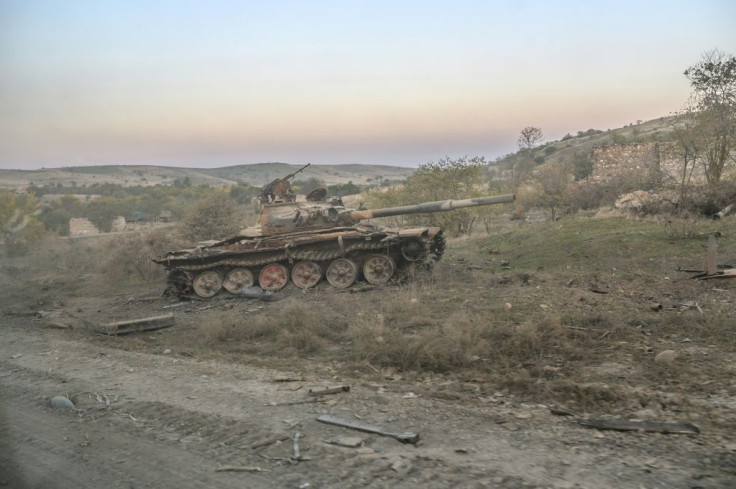
That Aliyev's army wanted to showcase its hold on this uninhabited hill articulates Azerbaijan's desire to put behind it the trauma of the 1988-1994 war.
It ended with Azerbaijan losing both Nagorno-Karabakh and surrounding areas such as Jabrayil and the nearby district of Fuzuli running along the Iranian border.
These provide access points to the southern gates of Nagorno-Karabakh and its capital Stepanakert.
Azerbaijan it trying to recapture the region by moving in from its southern and northern ends.
Most of its military successes have come on the border area of the conflict zone.
The exchanges of mortar and artillery fire on the north end around Terter are almost ceaseless and require residents to spend most of their time sheltering in basements.
But Azerbaijani men in fatigues raised their fists in triumph and looked at ease as they smoked along the country road leading into Jabrayil.
The tank guns and artillery pieces were still trained on the mountains but the soldiers manning them sat around campfires or idled away the time in the fields.
Wooden sticks dotted dried fields that once held up lush grapevines behind them.
Shoulder-high piles of bricks suggested the shape of houses that once lined the road.
Habilov struggled to recall the last time anyone lived in these valleys or how many people had called Jabrayil their home.
The Azerbaijani frontline is dotted with camps for families who have been forced to abandon such places.
"We have reclaimed ruins," Habilov said as he herded reporters out before the sun set over the Caucasus mountains.
"But we are also reclaiming our territorial integrity," he said.




